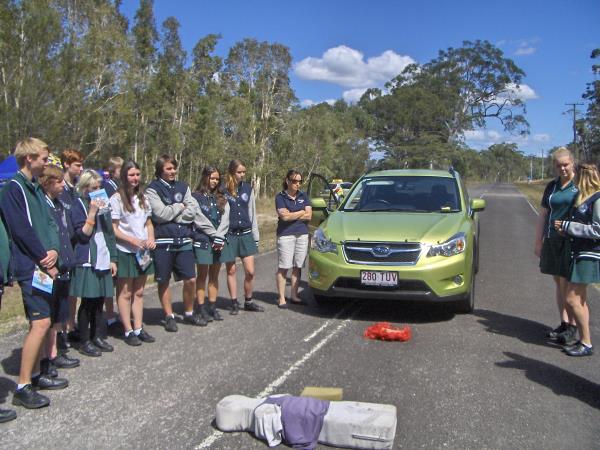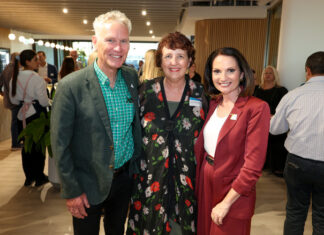By JONATHON HOWARD
FIVE adrenalin-pumping minutes behind the wheel of a speeding car, can lead to a lifetime of pain and heartache.
It’s a chilling thought and one that Noosa paraplegic Darren Shields, used to drive home the message of safe driving to a group Year 11 students from Noosa District State High School recently.
A total of 70 students were taking part in the Rotary Youth Driver Awareness (RYDA) program, which aims to teach students valuable driving and driver awareness lessons.
The lessons were delivered over six interactive sessions and aimed to explore crucial aspects of travelling safely such as, stopping distances; hazards, distractions and risks; alcohol, medications and fatigue; a crash survivor story; road choices regarding financial and legal ramifications; and how to choose and maintain a safe vehicle.
The students listened to a local policeman’s presentation on L and P plater driver legal rights and responsibilities and watched a video, which explained the ‘ripple effect’ caused by the death of a young driver on her family, friends, co-workers, classmates and those involved with the accident.
The Year 11’s designed their ‘dream car’ and explored some of the costs associated with running a vehicle.
Students provided some ‘Plan B’s’ for young drivers through looking at a number of scenarios and investigating some alternative options for drivers faced with potentially driving drunk or fatigued.
Paraplegic Darren Shields explained to the students how his life was changed in an instant when he lost focus of the task at hand, which was cycling, and due to his lack of focus, he missed noticing a parked car, which he hit head on.
Students were shown how stopping distance changes by the speed in which a vehicle is travelling and the reaction time, and were provided with an opportunity to drive with an instructor to experience how it feels to be in a car stopping within a range of speeds.
The Year 11 students found the day at RYDA to be educational and very practical, and the Rotarians involved hope it will save at least one life from the cohort with the day assisting students by providing them with the knowledge, life skills and tools to make more informed decisions.








